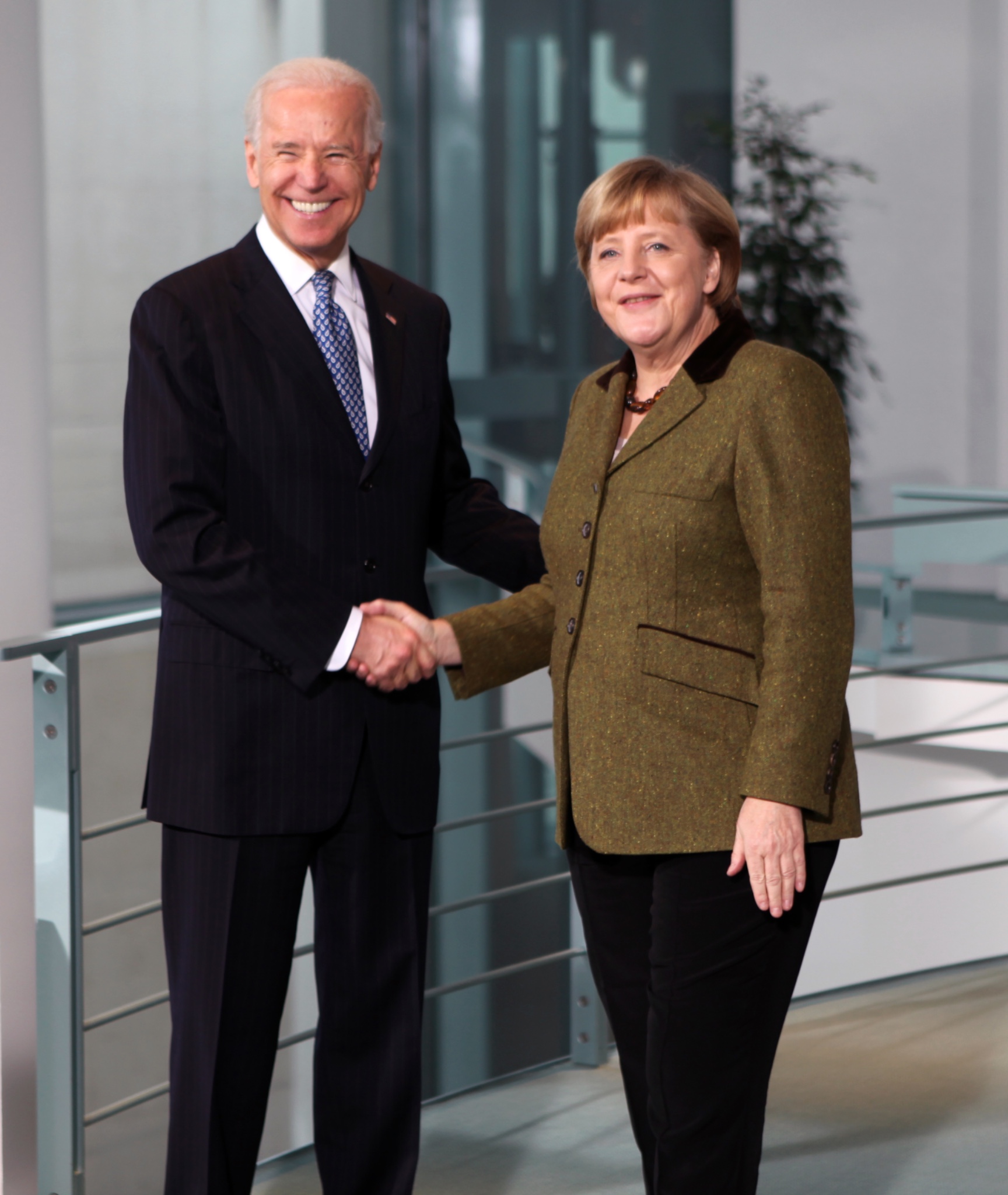 Photo Courtesy: usbotschaftberlin on Flickr
Photo Courtesy: usbotschaftberlin on Flickr
Revitalizing the Berlin-Washington Consensus on Moscow
The U.S. and Germany are vital partners in the transatlantic relationship, and should revitalize their cooperation to counter increasingly aggressive actions by Russia. The U.S. under the Biden administration is already on a new track towards Russia, and the recent expulsion of German diplomats in Moscow over their alleged participation in the recent protests is an impetus for Germany to review its relations with Russia too.
German-Russian Relations
The leaders of Germany have historically formed more cooperative relations with Russia than many of their European partners. With Merkel and Putin overlapping in their respective leaderships of their countries by over 15 years, they have led a secure and stable relationship between Moscow and Berlin. Germany also has more interests in Russia than the U.S., as it is an important trade partner, and Germany relies on gas from Russia.
American-German Relations
The United States and Germany are key partners in the transatlantic alliance, as Germany is one of the U.S.’ strongest allies in Europe. Yet American and German relations significantly deteriorated during the past four years, as President Trump disparaged Merkel and threatened to punish Germany over its insufficient military spending. Trump regularly expressed more criticism for Merkel, and consistently praised Putin.
President Biden is seeking to revitalize the transatlantic relationship with Germany. As Russia is a key issue for both Berlin and Washington, Biden should work with Merkel to reestablish a consensus on how they can work together. Biden’s statements indicate that he intends to take a harsher tone towards Russia than his predecessors, stating that he will not hesitate to impart higher costs on Moscow for its actions. He believes that the U.S. will be more effective in dealing with Russia when this is done in conjunction with allies and partners.
Opportunities
Relations have come to a head over the construction of the Nord Stream 2, an energy pipeline that would bring gas from Russia to Germany, bypassing Ukraine. The U.S. has slapped sanctions on the project, though it is almost completed at this point. The arrest and sentencing of Alexei Navalny have led to further calls from many EU members to stop the construction of Nord Stream 2, though it is currently unlikely that these declarations will actually impact the construction. It might be too late to have a discussion between the U.S. and Germany on Nord Stream 2 that would actually lead to any change, but there are certainly other issues in the transatlantic relationship to address.
The U.S. and Germany should discuss how they can respond to Russian cyber-attacks, as Russia conducted a cyber-attack against the German parliament in 2015 and against the U.S. government in 2019. Germany and the U.S. should increase cooperation on cyber security, expand information sharing on cyber threats, and create more opportunities for discussion and cooperation between cyber security experts in the private and public sectors from both nations.
They should also engage in a broader discussion on how to approach sanctions measures against Russia, especially in light of violent crackdowns and arrests of peaceful protestors in Russia and the arrest of Navalny. They should convene a working group to discuss and research the effectiveness of sanctions on Russia, and if they choose to impose sanctions, should coordinate such actions.
Burden sharing and defense spending is another subject to address in the transatlantic relationship. In 2014 all members of NATO agreed to increase their defense spending contributions to 2% of GDP within ten years. Seven years later and even as most countries increase their contributions, many still fall short of the 2% mark. As the deadline looms in 2024, Biden should convene earlier meetings with Germany and other NATO members to discuss this approach and other options to the issue of burden sharing.
Conclusion
While Biden should do all he can to immediately reinvigorate the transatlantic relationship, the German elections in September may offer other opportunities to improve relations with Berlin. It is too soon to know who stands the best chance of becoming the next German Chancellor, but some of the current top contenders are more hawkish than Merkel on Russia.
The U.S. and Germany are not always going to agree on how to deal with Russia, but there are many areas where their interests overlap. After the inconsistencies of the Trump presidency, the Biden administration should make engaging in consistent discussion with Berlin about Moscow and other European issues a priority. Dealing with Russia’s actions will always be more effective when more countries are willing to take action and push back together.





